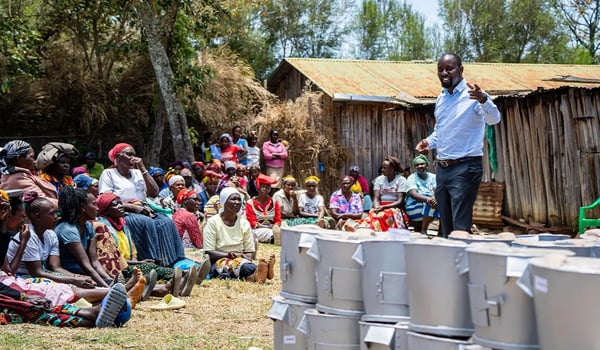Kenya has solidified its carbon market framework, allowing developers to apply for Letters of...
Netflix, Apple, Shell, Delta Join Kenya’s Kenya's Carbon Credit Expansion
In recent years, Kenya has emerged as a pivotal player in the voluntary carbon market (VCM), attracting massive investments from multinational corporations like Netflix, Apple, Shell, and Delta Air Lines. These investments are not only testament to Kenya's growing reputation in the carbon credit landscape but also highlight the significant environmental and economic impacts these credits can wield.
This blog explores the dynamics of Kenya's carbon credit market, the role of major global companies in this ecosystem, and the broader implications for climate finance and sustainable development in Africa.
Kenya's Rising Stature in the Carbon Market
The Growth of the Carbon Credit System
Kenya ranked as the second largest issuer of VCM carbon credits in Africa in 2022, only behind the Democratic Republic of the Congo. This boom is largely thanks to the African Carbon Markets Initiative (ACMI), which has significantly enhanced clean energy access across the continent by mobilizing climate finance through carbon credits (source).
Major Players Making Big Moves
Prominent companies including Netflix, Apple, Shell, and Delta have actively purchased carbon credits from Kenyan projects, which predominantly include nature-based initiatives like forestry and sustainable land use. These efforts are aimed at reducing emissions through projects that are both environmentally beneficial and economically viable (source).
Unveiling Kenya’s Carbon Credit Landscape
Nature-Based Projects at the Forefront
Most of Kenya's carbon credits have been generated from forestry and land use projects, managed by organizations such as:
- Wildlife Works Carbon
- Chyulu Hills Conservation Trust
- Northern Rangelands Trust
These entities have spearheaded projects that not only help reduce emissions from deforestation and forest degradation (REDD+) but also promote sustainable grassland management to bolster local conservation efforts (source).
Tech and Community-Based Credits
While nature-based credits dominate, technological and community-focused projects are also on the rise. For instance, household projects related to efficient cookstoves are becoming increasingly significant, contributing sizably to the carbon credits issued within the country.
The Economics of Carbon Credits in Kenya
Market Mechanisms and Financial Flows
The carbon credit market operates by allowing companies that emit CO2 to purchase credits from projects that prevent or remove an equivalent amount of greenhouse gas from the atmosphere. This system not only helps companies meet their environmental goals but also supports sustainable projects in developing countries like Kenya.
Pricing and Transparency Challenges
One of the main issues in the carbon credit market is the lack of transparency, especially concerning the pricing of credits, which are often sold through over-the-counter negotiations. However, estimates suggest that the cost to eliminate a ton of CO2 ranges between $40 and $80, reflecting the market's valuation based on the Paris Climate Agreement parameters (source).
Impact and Future Prospects
Carbon Credit Demand Surge
The demand for VCM credits has surged as companies across various sectors commit to net-zero targets. In 2022 alone, Kenya issued 11 million credits, underscoring the country's critical role in the global carbon market.
Governmental Regulations and Revenue Sharing
The Kenyan Ministry of Environment has proposed regulations to enhance market integrity, including a mandate that 25% of the revenue from private carbon credit sales be allocated to the government. These funds are intended to support national conservation and sustainability initiatives.
Conclusion
Kenya's ascent in the carbon credit market is a clear indicator of Africa's untapped potential in contributing to global decarbonization efforts. The involvement of leading global corporations not only validates the market's viability but also sets a precedent for other African nations to follow. As the market continues to mature, the need for robust standards and transparent practices will be paramount in maximizing its impact on both the environment and local communities.
Call to Action: For businesses and individuals alike, engaging in the carbon credit market offers a promising avenue to effect tangible environmental change while also achieving economic benefits. By investing in or partnering with credible carbon reduction projects, companies can not only enhance their sustainability profiles but also contribute to meaningful global climate action.





.jpg?width=600&name=damian-patkowski-T-LfvX-7IVg-unsplash%20(1).jpg)
